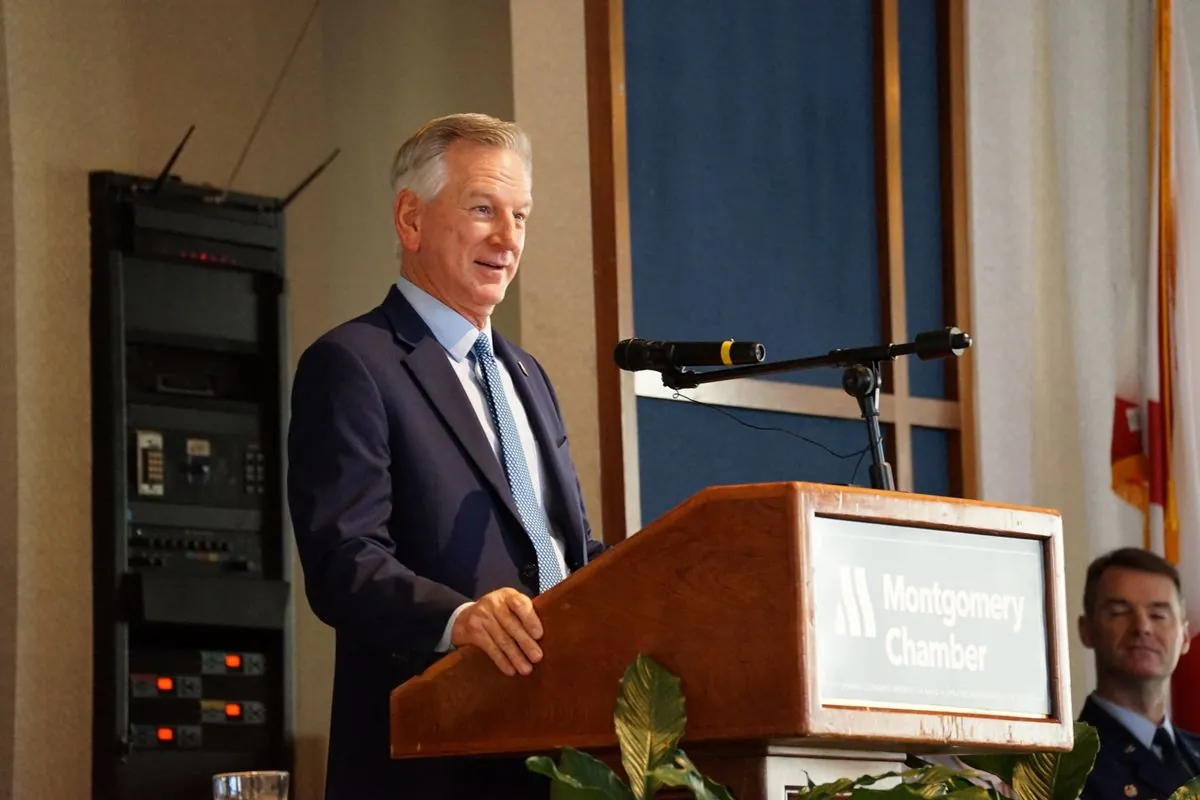Tuberville Lifts Hold on Key Military Promotion After Private Meeting
Senator Tuberville ends blockade on Lt. Gen. Clark's promotion to Pacific commander following a private discussion. The move comes amid ongoing scrutiny of Defense Secretary Austin's hospitalization incident.

Senator Tommy Tuberville has concluded his blockade on a significant military promotion, following a private meeting with the nominee. The Alabama Republican's decision came after facing pressure from fellow lawmakers on Capitol Hill.
Lt. Gen. Ronald P. Clark received approval for promotion to four-star general and appointment as commander of all U.S. Army forces in the Pacific. This development occurred after a "detailed discussion" between Clark and Tuberville, as confirmed by the senator's spokeswoman, Mallory Jaspers, on September 25, 2024.
Tuberville had previously placed a hold on Clark's promotion, questioning the general's role in the Pentagon's handling of Defense Secretary Lloyd Austin's hospitalization earlier this year. The secretary had been admitted to intensive care due to complications from prostate cancer surgery.

The resolution of this standoff bears similarities to Tuberville's previous freeze on hundreds of military promotions in 2023, which was related to the Pentagon's policy on travel reimbursement for personnel seeking abortions outside their stationed state. That impasse significantly disrupted the military's personnel system before Tuberville eventually relented under pressure from Republican colleagues.
In his new role, Clark will be at the forefront of U.S. efforts to address challenges in the Asia-Pacific region, particularly concerning China and the defense of Taiwan. The U.S. Army Pacific (USARPAC), which Clark will command, oversees an area encompassing 36 countries and 16 time zones, representing 60% of the world's population. This vast region includes five of the world's largest armies, underscoring the strategic importance of Clark's position.
The Senate's approval of Clark's promotion came alongside confirmations for other significant military assignments, including new commanders for U.S. Southern Command and U.S. Forces Korea. SOUTHCOM is responsible for Department of Defense security cooperation in 45 nations and territories across Central and South America and the Caribbean, while U.S. Forces Korea plays a crucial role in the joint U.S.-South Korea defense structure.
The controversy surrounding Austin's hospitalization remains a subject of ongoing scrutiny. The Pentagon's delayed disclosure of the secretary's condition in January 2024 sparked criticism from lawmakers across party lines. An investigation by the Defense Department's Inspector General is still underway, examining how Austin and his staff managed the health crisis.
"I want to be crystal clear: We did not handle this right. I did not handle this right. I should have told the president about my cancer diagnosis. I should have also told my team and the American public, and I take full responsibility."
This incident highlighted the critical role of the Secretary of Defense, a position created in 1947 that stands sixth in the presidential line of succession. It also underscored the importance of clear communication channels within the Department of Defense and with other branches of government.
As the U.S. military continues to navigate complex global challenges, the swift resolution of Tuberville's hold on Clark's promotion reflects the ongoing balance between congressional oversight and the operational needs of the armed forces. The incident serves as a reminder of the intricate interplay between political processes and national security imperatives in the world's largest military establishment.


































